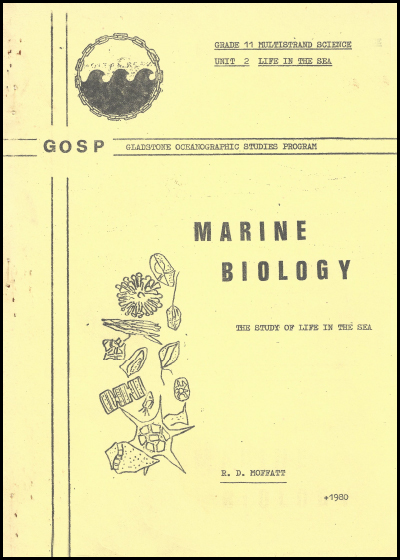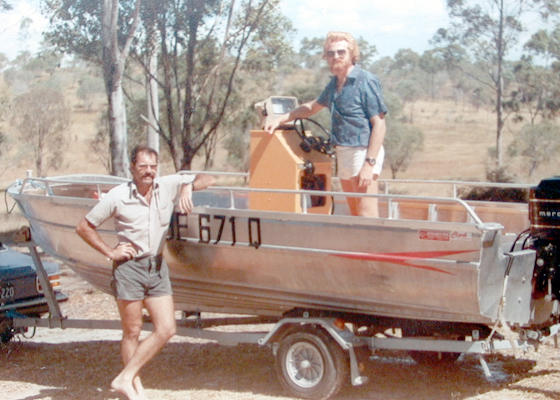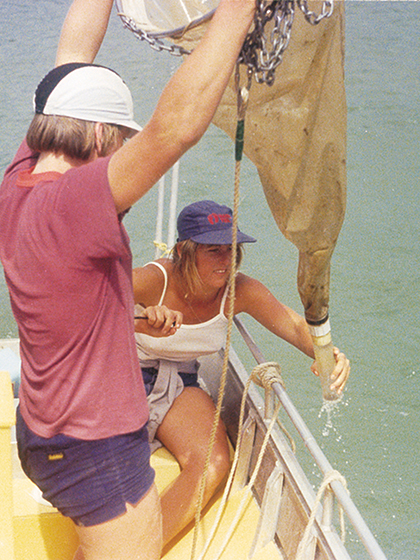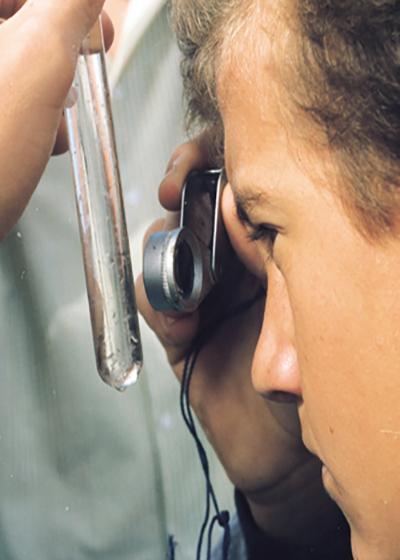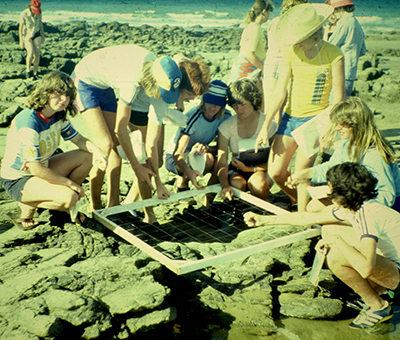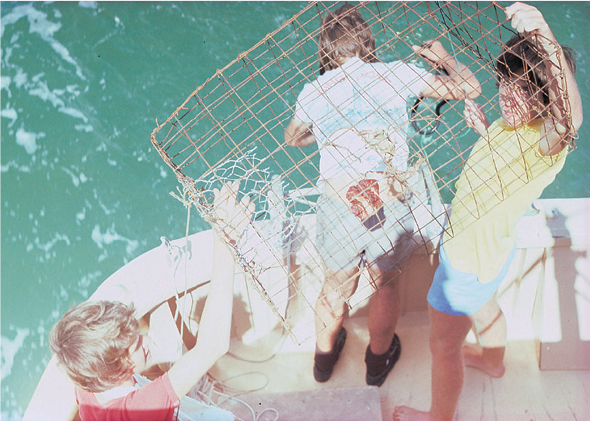1980 Marine Biology classroom notes

ISBN : None allocated
Published Date : 01 June 1980
Product Code : 1980 Unit 2
Format : Free PDF for download
By Bob Moffatt
Wet Paper publications non-commercial school licence
The publisher and author/s of this pdf file grant to the school a revocable, non-exclusive, non-transferable right and licence to use the content, exercises, lab and field work lesson notes within the school for educational purposes only.
Yearly record keeping
To ensure fair payment is made to collecting societies, educational institutions are to record the digital ISBN above.
- To do this go to the school office and ask the IT department or whoever looks after digital book licences to record the ISBN in the school digital library licence catalogue.
Copyright
Except as permitted by the Copyright Act 1968 (Cth), you may not reproduce any of the contents of this publication, without the written permission of the copyright owner.
The title to, and intellectual property rests with the publisher's author/s, illustrators, photographers and design consultants and nothing in the agreement should be construed as transferring those rights to the school.
Educational exemption
There are exemptions under the Act that allow educational and government use of text, images and music scores for educational purposes.
These exemptions are in Part VB of the Copyright Act 1968 (Cth), where you are entitled to reproduce or communicate 10% of the words or one chapter from this file for educational use within your school. If you wish to reproduce or communicate MORE than 10% contact the copyright owner.
For more information, see www.copyright.com.au and www.copyright.org.au.
Teachers Information
Acknowledgements
Science Staff Gladstone SHS (Ian Griffiths, Steve Hall, Greg Martin, Ann Kenny, Graham Mitchell), L. Zell - Great Barrier Reef Marine Park Authority for the foreword and other materials as acknowledged, Oxenhorn and Goldfield - Oceanography and Our Future, Globe Fearon Co (June 1, 1975), R Jenkins Oceanography FUSE Australia, ASEP Seashore Australian Government, M Bailey for typing and drawings, G Mitchell for illustrations as acknowledged, CSIRO Cleveland Division of Oceanography and Fisheries for consultation and advice.
Background
In 1979 David Kopelke Principal Boyne Island Field Study Centre along with Bob Moffatt Science Master at Gladstone SHS were successful in securing a Commonwealth Schools Commission Grant, (John Quinlan State Coordinator) of approx $16,000 to purchase a research vessel and marine science equipment to found the Gladstone Oceanography Studies Program (GOSP).
This unit was produced from 1979 - 1981 and supported by Ian Matheson Regional Director and Peter McDonald Regional Inspector from the Central Queensland Regional office as well as Barry McGuire, Principal Gladstone SHS.
Members of the GOSP community committee included GOSP committee members, Kerry Dickson, Juleen Wall and Brother Colin (Chanel College).
Science staff members Ian Griffiths, Ann Kenny, Graham Mitchell, Greg Martin, Jenny Caldwell and Steve Hall all supported the ideas of a practical science course based on the sea as well as Jim Baker Science SM.
The units ran in year 11 and 12 under the draft Multistrand Science Syllabus and the students work was moderated by the Board of Secondary School Studies (BOSSS) panel in Rockhampton.
Later it evolved into the STAQ Marine Science series when Bob Moffatt was transfered to Benowa SHS in the Brisbane South region where he met Regional Inspectors Cyril Connell and Clive Allen who mentored him in curriculum development.
Syllabus
This booklet was written for the DRAFT Board of Senior Secondary School Studies 1981 Multistrand Science syllabus ECOLOGY topic as follows.
"Life on earth depends on a delicate balance of events. Each living thing depends for its survival on other living things, on the physical characteristics of its immediate environment, and on energy from the sun. Any disruption to this delicate balance may threaten the life of living things, including man.
This topic should introduce students to the many interrelated factors which govern this delicate balance of nature. Students should become conversant with techniques to study the environment and man's effect upon it. They should attain a working knowledge of the principles of ecology, through a detailed study of a suitable ecosystem in their own environment. Field work would necessarily form an important part of this topic. In addition to basic ecological principles, various aspects of man's effect on this delicate balance e.g. pollution, use of technological controls, conservation, should be stressed where applicable." BOSSS Draft Syllabus 1981.
Project developers
The program was lead by David Kopelke, Principal of the BIFSC and Bob Moffatt, Science Master at Gladstone SHS and assisted by a regional committee from the local Special school and Catholic High School.
Program activities
The boat was used to collect plankton samples from Gladstone Harbour and Boyne River as well as acting as a safety boat on Reef Trips to North West and Masthead Islands.
The schools commission grant also allowed the purchase of a set of field microscopes, plankton net, water quality monitoring equipment and materials to trial navigation and construct coastal studies wave modelling equipment.
Water samples were collected and analysed with HTACH kits. Dissolved oxygen was very tricky and very hard to do as the equipment was new. We had better success with nitrates, pH and salinity.
The program laid the foundation for the STAQ trial Marine Science units in 1981-1982.
Contents
Objectives
Foreward
Chapter 6 Marine Ecology
Chapter 7 Crab and Prawn Ecology
Chapter 8 Fisheries Biology
Chapter 9 Some important invertebrates
Chapter 10 The Sea - A valuable resource
Book Resources


